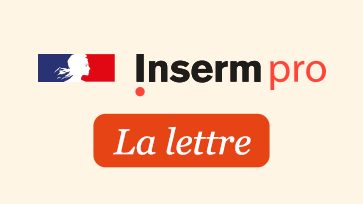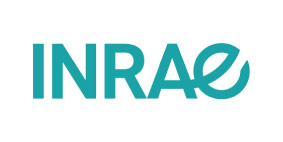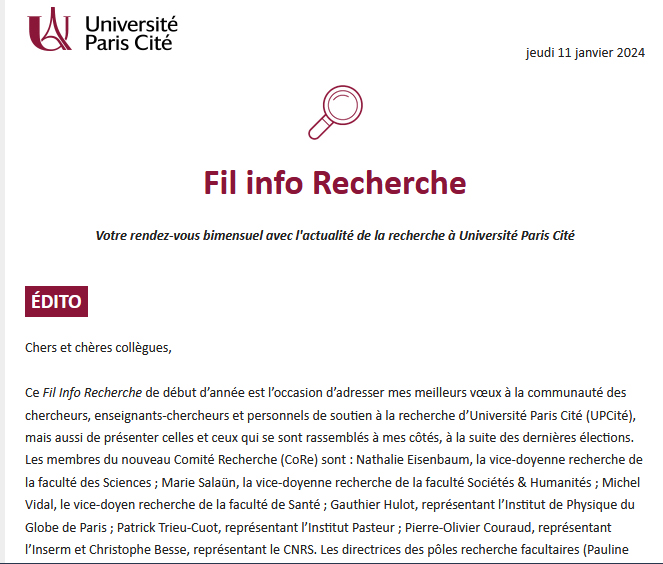
Inserm
Newsletter – 15th December – Open in a browser
Funding :
- Franco-Japanese collaboration
The French Embassy in Japan offers mobility support for researchers from French institutions who wish to establish new scientific collaborations with Japanese teams. The programme covers a return flight ticket and living expenses. Application deadline: 4 January 2026. Find out more
- Contributions of mathematics and computer science to oncology
On November 18, Inserm launched a call for projects entitled Contributions of mathematics and computer science to oncology (MIC). The aim is to develop or validate new models, concepts, or methods derived from mathematics and digital sciences. These interdisciplinary approaches should lead to advances in understanding the mechanisms of carcinogenesis, diagnosis, prognosis, and therapeutic management. Application deadline: January 8, 2026. Read more on Inserm pro
- Microbiomes, nutrition, and health
The Food Systems, Microbiomes, and Health program (PEPR SAMS), co-led by Inserm and funded by France 2030, is launching a second call for projects (funding up to €1.75 million) to support research on these topics. Deadline for submissions: January 13, 2026. Learn more
- Cardiovascular research
The Lefoulon Delalande Foundation’s Grand Prix Scientifique, worth €600,000, recognizes an individual who has made a significant scientific contribution to physiology, biology, or cardiovascular medicine. Application deadline: January 19, 2026. Learn more
- French-American collaboration
The Chateaubriand Fellowship program is now accepting applications from doctoral students wishing to conduct research in France during the 2026-2027 academic year. Funding includes a monthly stipend, assistance with airfare, and health insurance. Applicants must be enrolled at an American university and receive joint supervision from a French laboratory and an American supervisor. A webinar presentation will be held on November 21 at 5 p.m. Application deadline: January 25, 2026. Learn more
- Neuroscience
The NRJ Foundation of the Institut de France is inviting applications for an award to recognize a scientist in the field of neuroscience, specifically in the area of brain-machine interfaces (€150,000). Application deadline: January 29. Learn more (pdf)
- Precision psychiatry
With the €250,000 Precision Mind 2026 Award, the FondaMental foundation and insurer Wakam are supporting Franco-British research projects on blood biomarkers in psychiatry. Application deadline: 30 January 2026. Find out more
- HIV
Sidaction is launching three calls for projects to support HIV research. Team grants fund research projects lasting up to 24 months or 12-month proof-of-concept projects. Thesis funding supports young researchers pursuing a PhD. Finally, the Young Researchers, Post-Docs and Thesis Completion programme funds the final year of a thesis, post-doctoral projects or projects led by doctors or pharmacists. Application deadline: 12 February 2026. Find out more
- Franco-American collaboration
The Albertine Foundation and the French Embassy in the United States are offering young French and American researchers (who obtained their PhD less than seven years ago) a £14,000 grant to support Franco-American research projects over two years. Application deadline: 15 February 2026. Find out more
- Microbiomes, food and health
Reminder: The PEPR Food Systems, Microbiomes and Health programme supports research into the links between microbiomes, eating habits and health, as well as the dynamics of food systems. Funding can reach up to €1.75 million for microbiome-health projects, €1 million for food systems projects and €1.5 million for mixed projects. Application deadline: 17 February 2026. Find out more
- Cardiology
The Lefoulon-Delalande Foundation is launching its call for research equipment projects dedicated to supporting cardiovascular research. This initiative aims to fund the acquisition of equipment within research structures affiliated with Inserm or CNRS. The programme has a budget of €1 million, with grants of up to €500,000 per project. Application deadline: 2 March 2026 at 6 p.m. Find out more
- Bpifrance and Inria are launching a call for projects
entitled “Pioneers of Artificial Intelligence” as part of the France 2030 plan. The aim of the plan is to support disruptive research projects in artificial intelligence, with funding ranging from €100,000 to €8 million. Application deadline: June 9, 2026. Find out more
- Find all current funding opportunities on Inserm pro
Université Paris Cité
Research News – 11th December – click here
FUNDING FOR RESEARCH PROJECTS
- INSERM – Contributions of physics, chemistry, and engineering sciences to oncology (PCSI) – Interdisciplinary approaches to oncogenic processes and therapeutic prospects 2026
Budget: minimum of €25,000 per team, excluding management costs
Duration: 36 months
Deadline: December 23, 2025, at 5 p.m.
- INCa & UPCité – Creation of a chair in “AI and Clinical Research in Oncology”INCa, in partnership with UPCité, wishes to establish a research chair promoting the development of AI applied to clinical research in oncology by structuring an interdisciplinary research program. The aim is to develop models while ensuring the transparency, reliability, and security of health data. This chair will be a center of excellence and a benchmark for academic, industrial, and regulatory stakeholders.Duration: 60 months
Budget: INCa grant: €1.3 million; UPCité: Provision of premises
Deadline: December 27, 2025, at 4 p.m.
- AAP – Hubert Curien Program (PHC)The PHC funds mobility within the framework of bilateral projects presented jointly by one or more French research teams. It promotes scientific and technological cooperation between French and foreign researchers within public institutions, encourages the establishment of new links and partnerships, and fosters the development of innovative ideas of excellence. It promotes synergies between two scientific communities and strengthens links between research and the industrial sector (public and private). The participation of young researchers and doctoral students will be a valued criterion. For partnerships with European countries, particular attention will be paid to projects that fit within the European Union’s political priorities as expressed in the new Horizon Europe framework program. READ MORE on the websitePHC Tonlé Sap 2026
Deadline: December 29, 2025
- ANR – Support for European or International Scientific Networks 2025 (SRSEI)The ANR SRSEI call for proposals supports French participation in European and international calls for proposals by supporting research networks coordinated by French teams. This funding can cover mission expenses, reception expenses, seminar organization expenses, and services necessary for setting up projects. Applications must be submitted within 15 days of the results of the first stage of the European or international call for proposals. The program complements the MRSEI and aims to support projects selected for the second stage of a call for proposals by providing financial support to strengthen their application.Budget: €17,000
Duration: 12 months
Deadline: ongoing until December 31, 2025, at 5 p.m.
- European Commission – European Health and Digital Executive Agency (HaDEA) EU4Health Action Grants 2025HaDEA, on behalf of the European Commission, has launched nine calls for projects under the EU4Health 2025 program, with a total budget of €56.8 million, aimed at strengthening prevention, innovation, and access to healthcare in Europe. These calls cover a variety of topics, such as cancer screening (gastric, lung, prostate), the use of AI and health data for cardiovascular diseases, lifelong prevention, price monitoring and access to medicines, orphan medical devices for children, and the organization of conferences.Deadline: January 6, 2026, at 5 p.m.
- MSA – AAP 2026The Mutualité sociale agricole (MSA) is launching its annual call for projects aimed at funding research projects carried out by French scientific laboratories in all disciplines in the fields of health and social protection for rural and agricultural populations. Projects are funded for a maximum of two years. The maximum amount of funding is €120,000. READ MORE on the websiteDeadline: January 12, 2026
- UPCité – NUS – AAP 2026As part of the strategic partnership between Université Paris Cité and the National University of Singapore (NUS), three new calls for projects have been launched for 2026:call for research projects
call for doctoral student mobility projects
call for educational innovation projectsThis initiative offers an excellent opportunity to strengthen international collaboration and educational innovation. It also promotes the development of new teaching methods, programs, and technologies for the benefit of students and institutions.
Deadline: January 15, 2026 READ MORE on the website
- Interdisciplinary Institute for Women’s Health – iWISH – Call for applications – Research Chair in “Physical Activity, Sport, and Women’s Health”This chair, supported by the Interdisciplinary Institute for Women’s Health – iWISH, aims to support innovative projects on the impact of physical activity and sport on women’s health. It is open to holders of a PhD in a relevant field for more than two years, with no restrictions on age or nationality.Budget: €360k over three years (+ welcome package of up to €100k)
Deadline: February 2, 2025, at 12 p.m.
- UdeM – AAP – EU Partnership Grants – UdeMThe University of Montreal has launched a call for projects aimed at strengthening research collaborations between its researchers and institutions in the European Union, including Paris Cité University as a privileged partner. This call is open on an ongoing basis. READ MORE on the website
RESEARCH PRIZES
INRAE Newsletter – Lettre d’information INRAE


